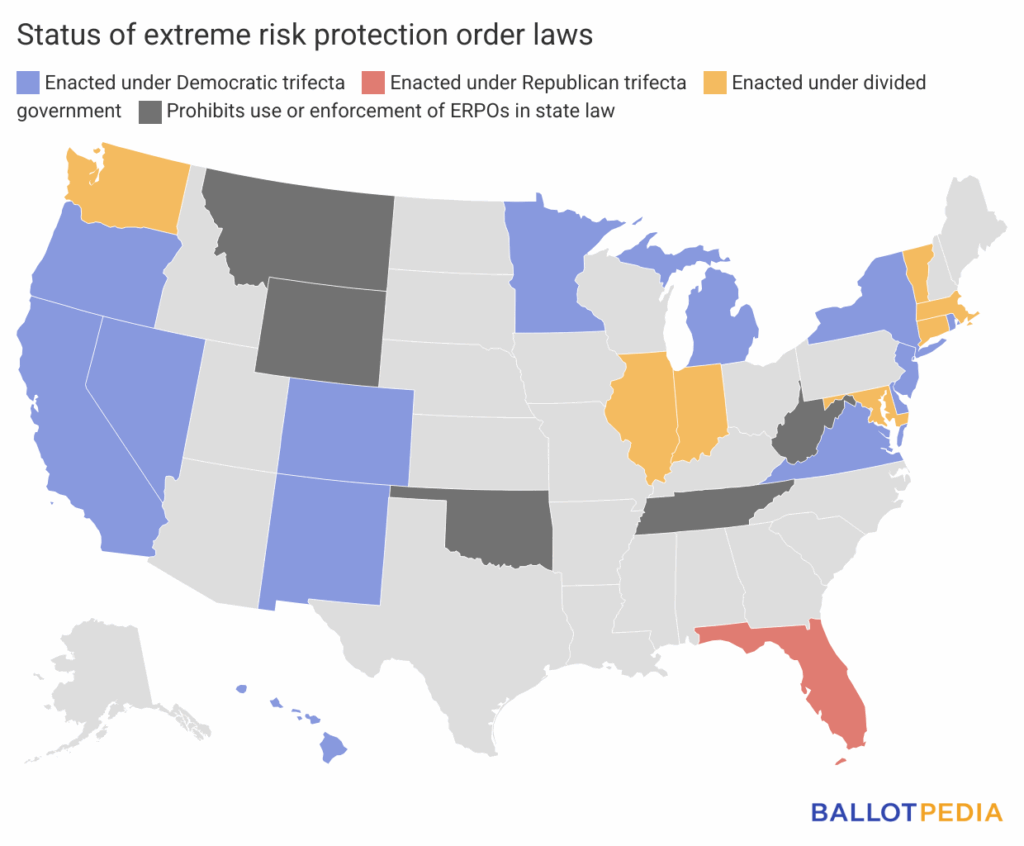On May 8, Gov. Greg Gianforte (R) signed HB 809 into law, banning local governments in the state from enacting or enforcing extreme risk protection orders (ERPOs).
The Republican-sponsored bill passed the legislature largely along party lines, but two Republicans in both the Montana House of Representatives and Montana Senate voted against the bill.
With the new law, Montana is the fifth state to ban or restrict the use of ERPOs, joining Oklahoma, Tennessee, West Virginia, and Wyoming. Oklahoma became the first state with such a law in 2020. All five states to adopt these laws had a Republican trifecta in control of state government at the time.
Twenty-one states have laws authorizing courts to issue extreme risk protection orders. These laws typically allow family members, household members, and law enforcement officers to petition a court to restrict an individual's access to firearms when it is believed the individual is a threat to themselves or others. Of states with these laws, 13 had a Democratic trifecta when they adopted the law, seven had divided governments, and one — Florida — had a Republican trifecta. Michigan and Minnesota were the most recent states to adopt ERPO laws, doing so in 2023.

The new law in Montana says:
"A local government may not: enact, adopt, or implement a resolution, ordinance, rule, regulation, or policy that would have the effect of enforcing an extreme risk protection order against a resident of the state; or (b) accept a grant or other source of funding for the purpose of aiding in the adoption, implementation, or enforcement of an extreme risk protection order."
The bill's sponsor, Rep. Braxton Mitchell (R), said, "This is a commonsense measure to make sure individuals are not derived of their ability to keep and bear arms without due process." After signing the bill, Gov. Gianforte said on X, "Protecting our God-given freedoms and our way of life is not a question in Montana."
One of the Republican lawmakers who voted against the bill, Rep. John Fitzpatrick (R), said, "This is not a second amendment right bill, this is another piece of legislation just like we had yesterday, where the second amendment is being waved as a flag for the specific purpose of protecting people who engage in criminal activity."
The bill made an exception for the confiscation of firearms related to protective orders requested by one individual against another and granted by a judge, as provided for in Title 40, Chapter 15 of state law.
Additional reading:


